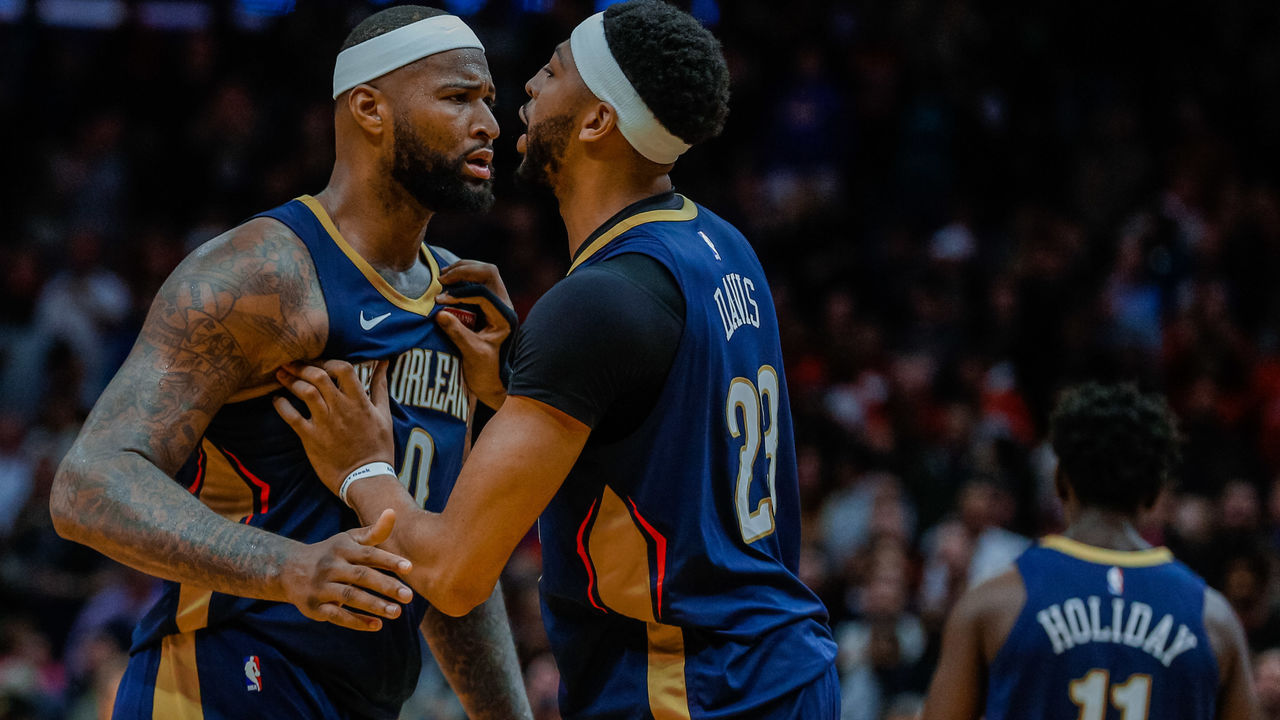3 questions stemming from DeMarcus Cousins' injury
Nobody likes to see season-ending injuries in sports, but it's even more galling when it happens to a player who was having a great year as a crucial part of a team.
Enter DeMarcus Cousins' torn Achilles tendon, and a rehabilitation timetable that will keep the New Orleans Pelicans center out of action for a reported 6-to-10 months. Cousins - one of the NBA's consistent top 10 players - needs to focus on his recovery, but in the meantime three big questions come to mind.
How bad are Achilles tears?
The answer is bad. In terms of star-calibre NBA players to suffer the catastrophic injury, only Dominique Wilkins was able to consistently recapture the form he had before getting hurt.
| Player/Year injured | Pre-injury PPG/PER | Post-injury PPG/PER |
|---|---|---|
| Dominique Wilkins/1992 | 26.2/22 | 21.5/20.4 |
| Patrick Ewing/1999 | 23.3/21.9 | 10.1/14.8 |
| Elton Brand/2007 | 20.3/22.7 | 10/16.1 |
| Kobe Bryant/2013 | 25.5/23.4 | 22.5/15.7 |
| Brandon Jennings/2015 | 16.6/16.3 | 7/12.6 |
Wesley Matthews and Rudy Gay have fared alright since their Achilles injuries in 2015 and 2017, respectively, but Matthews has lost a step and Gay is now an (effective) role player. Unlike Ewing and Bryant, Cousins was not yet in his 30s at the time of the injury, but is a few months younger than Brand was when he suffered a ruptured Achilles in 2007.
There is no question a player can return and be very good afterwards, but Cousins has been the premier traditional center in the league since 2014, and there are legitimate questions as to how these leg injuries affect big men.
How will it affect Cousins' free agency?
Two anonymous NBA executives voiced doubt to The Ringer's Kevin O'Connor that Cousins could land a max contract this summer in the wake of the injury. That's debatable, however, given that the Dallas Mavericks signed Matthews to a four-year, $70-million max deal four months after rupturing his Achilles as a member of the Portland Trail Blazers.
Cousins is a far more elite player than Matthews was at that time, and making progress in recovery without major setbacks should get Cousins paid. There is, however, some of the baggage that comes with the cantankerous big man, something that has led several teams to adopt an "ironclad 'No Boogie' rule," according to ESPN's Zach Lowe. If the injury compounds that remains to be seen.
Where does it leave the Pelicans?

Another sad angle to this saga is the end - possibly for good - of the Pelicans' bizarro, old-school, twin-tower experiment of Cousins alongside Anthony Davis. While many predicted it wouldn't work, the pair have absolutely dominated their positions with Davis at the four and Cousins at the five.
Cousins was averaging a career-high 5.4 assists as Davis' primary playmaker, not to mention spacing the floor with a career-high 6.1 three-point attempts per game. Unevenly stacked with bigs and traditional point guards, the Pelicans' roster isn't deep at all, and the injury now puts more of the scoring responsibility on guard Jrue Holiday's shoulders.
The problem is, there's already a tremendous load on Holiday and Davis, and the Pelicans will be in a dogfight to stay in the Western Conference top eight down the stretch. Starting Feb. 2, New Orleans plays 10 of 15 on the road, and four of its final seven games of the season come against the Cavs, Thunder, Warriors, and Spurs.